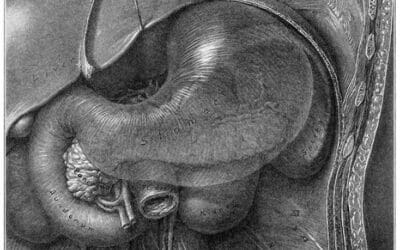Node Smith, ND
There are many benefits an infant receives from being breastfed – immunological protection from mom, skin to skin bonding, and a nutrient dense food source that is specifically made for that child. However, breastfeeding may not be possible for some infants, for whatever reason. But not all baby formulas are created equal, and a recent paper in Molecular Genetics and Metabolism warns against using formulas that contain fructose, due to the potential of it causing problems in babies born with a hereditary fructose intolerance (HFI).1
Approximately 1 in 20,000 babies are born with HFI
Approximately 1 in 20,000 babies are born with HFI and face a serious risk of acute liver failure if they fed formula containing fructose. The paper looks at 4 individual cases of acute liver failure in infants who were diagnosed with HFI and subsequently fed formula containing fructose. When the formula was switched to one without fructose the liver failure resolved.
Mutation in the aldolase B gene
HFI occurs from a mutation in the aldolase B gene which results in an inability to metabolize fructose in the liver. Symptoms may include vomiting, nausea, failure to thrive and abdominal pain. Unrecognized, HFI can result in severe kidney and liver damage as well as seizures and death.
Pediatricians urging baby formula manufacturers to remove fructose and sucrose from products
Typically, in breastfed, babies, HFI does not cause issues until sold foods containing fructose are introduced several months after birth. However, many formulas – often soy-based – contain high-fructose corn syrup or sucrose (which is made from fructose and glucose bonded together). Often, the word “sugar” is used to describe sucrose, making it difficult to know if the formula contains fructose. Pediatricians are urging baby formula manufacturers to remove fructose and sucrose from products, or to explicitly label these items to prevent exposure to these babies. The authors of the paper comment that in some of the cases they looked at the physician had to call the formula manufacturer to determine if fructose was in the product.
Symptoms of HFI
The symptoms of HFI appear a lot like galactosemia, an inherited intolerance of lactose. This condition if far more common and could result in a switch to a non-cow milk formula. These “alternative milk” formulas are much more likely to contain fructose, and if a baby is getting worse when switched to a new formula, HFI may be more likely – since often a switch in formula will be attempted before testing results are obtained, or simply because the clinical symptoms suggest galactosemia. Sometimes there will be a family history of inherited metabolic disorder, but the exact diagnosis may not be known.
These conditions can be confused with mitochondrial conditions or infection (due to acute liver failure). But HFI is an easily treatable condition, once the origin of the fructose is discovered.
Source:
- Li H, Byers HM, Diaz-kuan A, et al. Acute liver failure in neonates with undiagnosed hereditary fructose intolerance due to exposure from widely available infant formulas. Mol Genet Metab. 2018;123(4):428-432.
Image Copyright: <a href=’https://www.123rf.com/profile_szeyuen’>szeyuen / 123RF Stock Photo</a>
 Node Smith, ND, is a naturopathic physician in Portland, OR and associate editor for NDNR. He has been instrumental in maintaining a firm connection to the philosophy and heritage of naturopathic medicine among the next generation of docs. He helped found the first multi-generational experiential retreat, which brings elders, alumni, and students together for a weekend camp-out where naturopathic medicine and medical philosophy are experienced in nature. Four years ago he helped found the non-profit, Association for Naturopathic ReVitalization (ANR), for which he serves as the board chairman. ANR has a mission to inspire health practitioners to embody the naturopathic principles through experiential education. Node also has a firm belief that the next era of naturopathic medicine will see a resurgence of in-patient facilities which use fasting, earthing, hydrotherapy and homeopathy to bring people back from chronic diseases of modern living; he is involved in numerous conversations and projects to bring about this vision.
Node Smith, ND, is a naturopathic physician in Portland, OR and associate editor for NDNR. He has been instrumental in maintaining a firm connection to the philosophy and heritage of naturopathic medicine among the next generation of docs. He helped found the first multi-generational experiential retreat, which brings elders, alumni, and students together for a weekend camp-out where naturopathic medicine and medical philosophy are experienced in nature. Four years ago he helped found the non-profit, Association for Naturopathic ReVitalization (ANR), for which he serves as the board chairman. ANR has a mission to inspire health practitioners to embody the naturopathic principles through experiential education. Node also has a firm belief that the next era of naturopathic medicine will see a resurgence of in-patient facilities which use fasting, earthing, hydrotherapy and homeopathy to bring people back from chronic diseases of modern living; he is involved in numerous conversations and projects to bring about this vision.




















